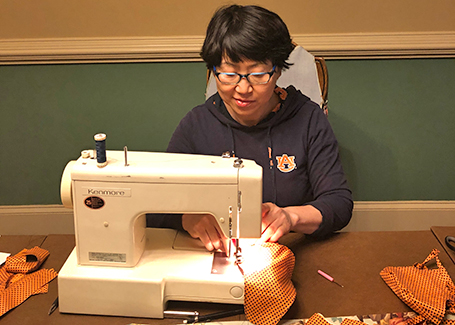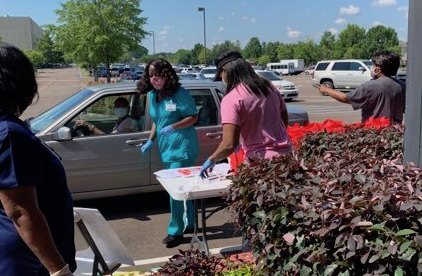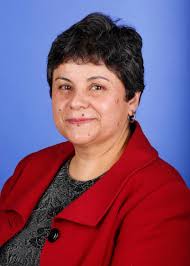The CCTS is a proud partner in the NIH All of Us Research Program, which aims to engage one million participants to share data that can fuel new insights into human health. As an All of Us partner, we’re working with NIH to build one of the most diverse health databases in history. Recently, All of Us opened the Researcher Workbench beta version and is inviting researchers who meet certain criteria to apply for access and explore the initial dataset and tools. The Researcher Workbench is a secure, cloud-based platform that offers researchers an opportunity to execute rapid, hypothesis-driven research and build new methods for the future.
The Researcher Workbench data currently includes:
● Survey data for 224,000+ participants (including lifestyle, access to care, medical history, and more)
● Physical measurements for 188,000+ participants (including blood pressure, heart rate, BMI, and more)
● EHR data for 127,000+ participants (including demographics, visits, diagnoses, and medications data, harmonized according to our common data model)
And this is just the beginning. More data (such as information from wearables, COVID-19 data, and genomic data) will be added over time, and NIH will continue evolving the platform using input from early users (like you!). Before you begin taking the steps to receive your passport to the All of Us data, review the thorough FAQs to explore your questions about the All of Us cohort, or check out the slide deck from the recent training seminar.
-
How to Gain Access
1. See if your institution has signed a data use agreement. Check out the list here, and if you don’t see your institution listed fill out this form.
2. Register as a researcher. Once the Data Use and Registration agreement is in place, apply for access by setting up your account here.
3. Connect your new account to your eRACommons.
4. Complete the All of Us responsible conduct of research training and sign the data user code of conduct.
Training Materials:
Slide Deck
Video
Visit ResearchAllofUs.org to learn more.
The 2020 Community Engagement Institute, under the leadership of Dr. Shauntice Allen, took place on October 2nd featuring an incredible lineup of guest speakers and the theme of Sharing the Torch: Mobilizing Across Generations. For the first time, this event was held in a virtual format, with over 200 participants tuning in from across the region to take part in conversations about issues facing communities in the Deep South.
The event kicked off with an interview-style discussion between keynote speaker Lauren Simmons, the youngest trader, only female, and second African American woman at the New York Stock Exchange and Dr. Shauntice Allen, CEI lead and Assistant Professor with the School of Public Health at UAB. The discussion covered many topics including how Lauren came to be in her position, what it took to get there, how individuals in minority communities can create spaces for themselves in any arena, the need to remember and honor those torch-bearers that paved the way through history to create the opportunities of today, and the call to action to pay it forward for younger generations.
Next, participants heard from a panel of guest speakers moderated by Attorney A. Michelle Clemon, JD, MS, SPHR. This panel featured Activist and Speaker T. Marie King, Deputy Director of the Hispanic Interest Coalition of Alabama (HICA), Carlos E. Alemán, Executive Director of the Mississippi State Conference NAACP, Corey Wiggins, and Student Activist, Isabel Hope.
Clemon began the panel discussion by digging into the theme of “passing the torch.” Panelists discussed their own definitions of “torch” and what it means in the context of community and collaboration, leveraging the power of community, and sharing stories of success as means of empowering others. T. Marie King said, “The torch to me means support, guidance, and release. When I think about the Olympic torch being passed, you actually have to take it somewhere, give it, make sure it has the support in that person’s hands, and let it go. Ego has to be let go, knowing that idea of what we wanted or envisioned may change due to the next generation getting a hold of it and running with it as they see fit.”
The panel included 18-year-old college student and activist, Isabel Hope, who brought a unique perspective on the characteristics of her generation (Gen Z) and the ways they are equipped to create change. “We are very racially and ethnically varied,” she said, “varied in terms of political thought, and we have a lot of variation in what kind of activism we’re willing to do and how we mobilize people.”
The panel went on to discuss barriers to sharing the torch and ways we can facilitate the transfer of knowledge and activation of the next generation. Corey Wiggins said, “I tell people that social justice work is like a buffet. Take as much as you want or as little as you want, but there’s work still to be done. It is a space for everybody.”
The remainder of the discussion covered a range of topics including examples of public figures who have modeled effective sharing of knowledge and moving generations to action, and advice from the panelists on how to help others understand the importance of sharing their torch. The panelists shared rich discussion around all of these topics and more, and through the event streaming platform, audience members were able to ask the speakers questions in real time. Panelist Carlos E. Alemán said, “We need real dialogue with the communities we want to serve so that our service reflects their needs and priorities.” This event was a powerful reminder of the importance of dialogue among communities and across generations in order to create the change needed to move society forward in creating parity for all people.
The Center for Clinical and Translational Science (CCTS) has been awarded an NIH Administrative Supplement to investigate Maternal Mortality (MM) and Severe Maternal Morbidity (SMM), and the associated health disparities which disproportionately affect the Deep South. This supplement is part of an NIH initiative “to address the scientific priorities that will lay the foundation for the Implementing a Maternal health and PRegnancy Outcomes Vision for Everyone (IMPROVE).”
In 2018 in the U.S., the rate of MM (death of pregnant women, or up to one year post-partum) was 17.4, and 50,000 women experienced SMM (conditions predisposing pregnant and post-partum women to life-threatening complications). This funding will be used to fill a gap in research on racial disparities in MM and SMM under the leadership of Monica Baskin, PhD, Professor in the UAB Division of Preventive Medicine, and a multidisciplinary team that includes Drs. Alan Tita, Rachel Sinkey, and Zoe Julian in the UAB School of Medicine, and Drs. Janet Turan and Martha Wingate in the UAB School of Public Health. According to Baskin, “This award will allow our multidisciplinary team to identify multi-level determinants of racial disparities in maternal mortality and severe maternal morbidity, including healthcare system distrust, perceived discrimination, and racism. We will also collect data from diverse stakeholders to better understand factors that contribute to optimal maternal outcomes.” The study builds upon previous work examining racial disparities in maternal and infant outcomes, stigma and discrimination during patient-provider interactions, and data collected from the Center for Women’s Reproductive Health (CWRH) and Department of Obstetrics and Gynecology at the University of Alabama at Birmingham. It also builds upon the efforts of the National Perinatal Research Consortium, a five-CTSA collaborative with UAB leaders, led by the CCTS and Dr. Alan Tita that assembles state-of-the-art research capacity to support high-quality, multi-site clinical trials and comparative effectiveness outcomes analyses to address major knowledge gaps in maternal-fetal medicine.
This supplement will allow the CWRH Maternal Mortality Working Group to collect critical preliminary data to inform future research and implementation of evidence-based interventions that incorporate community partnerships and systems-based strategies to improve health equity and maternal well being. Baskin shares, “The ultimate goal of our work is to design, implement, and disseminate effective strategies to optimize maternal health for all mothers.”

UAB Seeks Distributed Informatics Analytics Core (DIAC) Director
The University of Alabama at Birmingham (UAB) seeks a Director to oversee its new Distributed Informatics Analytics Core (DIAC). DIAC consists of a central group of biomedical informatics analysts who provide collaborative support to researchers working with clinical and biological data, coordinated with a set of collaborators (distributed throughout UAB) who work in these areas. The primary focus of support will be in bioinformatics, but will also include clinical and translational analytics as well.
Reporting to the Director of the Informatics Institute, the Core Director will manage the day-to-day operations of analysts, scientists and faculty who report directly to the Core Director or work in cooperation with the Core to meet the needs of researchers in the School of Medicine and other university schools.
Key responsibilities include:
- Oversee and coordinate activities of analysts assigned to established research projects
- Personally carry out bioinformatics analytics in direct collaboration with researchers
- Assist in acquiring research funding, including contributing to proposal and manuscript preparation
- Work with the Informatics Institute, the UAB Center for Clinical and translational Sciences, and Departments for staff recruiting
To apply, please submit a cover letter, resume, and a list of analytic areas in which you have worked in the past three years, to the Informatics Institute Director, James Cimino, MD (
Alabama, Mississippi, and Louisiana are all represented in the Southern Commonweal, a CCTS initiative designed to drive conversation and enhance partnerships that ameliorate our common health challenges in the Deep South, which has become even more critical with the arrival of COVID-19. We’ve spotlighted projects that three members of the Commonweal have shared during recent meetings. The efforts at their institutions speak to an incredible amount of collaboration and care.
 Dong Shang, a volunteer sewist for Auburn University's mask initiative.Chippewa Thomas, PhD, MEd, BA, is a professor and the Director of Faculty Engagement for the Office of the Vice President for University Outreach at Auburn University. She was part of a massive effort to make and distribute over 12,000 masks for the local community. Scott Bishop, Director of the Osher Lifelong Learning Institute, led the mask initiative but recognizes the teamwork that was at play, sharing “I cannot emphasize enough how important the support of the Auburn University administration was for the success of this project. Within three weeks from the time that we decided to initiate the project, we had financial support, a website, instructional video, communications and marketing support, and fabric to cut into pre-made kits for sewing.” Auburn’s School of Industrial Design supplied the laser cutter needed to create the kits, and more than 200 volunteers helped in production and distribution.
Dong Shang, a volunteer sewist for Auburn University's mask initiative.Chippewa Thomas, PhD, MEd, BA, is a professor and the Director of Faculty Engagement for the Office of the Vice President for University Outreach at Auburn University. She was part of a massive effort to make and distribute over 12,000 masks for the local community. Scott Bishop, Director of the Osher Lifelong Learning Institute, led the mask initiative but recognizes the teamwork that was at play, sharing “I cannot emphasize enough how important the support of the Auburn University administration was for the success of this project. Within three weeks from the time that we decided to initiate the project, we had financial support, a website, instructional video, communications and marketing support, and fabric to cut into pre-made kits for sewing.” Auburn’s School of Industrial Design supplied the laser cutter needed to create the kits, and more than 200 volunteers helped in production and distribution.
 Mississippi residents have drive-through access to masks and hand sanitizer. Cassandra Dove, MA, is the Chief Programs Officer for the Office Preventative Health & Health Equity for the Mississippi State Health Department, providing the Commonweal a broader perspective on the state’s response to COVID-19. Chigozie Udemgba, PhD, leads the Health Equity Response Team for the department, and organized their focus around three areas: 1) providing access to resources like masks (200,000 were distributed last month alone!) and hand sanitizer, 2) educating communities about the pandemic, and 3) providing ease of access to testing. The department has partnered with faith community leaders and the Mississippi Head Start Association to increase their reach and effectiveness.
Mississippi residents have drive-through access to masks and hand sanitizer. Cassandra Dove, MA, is the Chief Programs Officer for the Office Preventative Health & Health Equity for the Mississippi State Health Department, providing the Commonweal a broader perspective on the state’s response to COVID-19. Chigozie Udemgba, PhD, leads the Health Equity Response Team for the department, and organized their focus around three areas: 1) providing access to resources like masks (200,000 were distributed last month alone!) and hand sanitizer, 2) educating communities about the pandemic, and 3) providing ease of access to testing. The department has partnered with faith community leaders and the Mississippi Head Start Association to increase their reach and effectiveness.
M Martha Arrieta, PhD, University of South Alabamaartha Arrieta, PhD, is the Director of Research at the Center for Health Communities at the University of South Alabama, and after it was reported that disparities were evident in COVID-19 mortality, she worked with a team that launched a qualitative study to understand how underserved communities in Mobile, Alabama were experiencing the pandemic. Virtual focus groups and interviews were held in order to understand what specific needs COVID-19 has created or exacerbated, and how to address those challenges. The study also evaluated how to most effectively communicate important information. The study is complete and Arietta is working with her team to prepare an action-oriented report to share with community stakeholders.
Martha Arrieta, PhD, University of South Alabamaartha Arrieta, PhD, is the Director of Research at the Center for Health Communities at the University of South Alabama, and after it was reported that disparities were evident in COVID-19 mortality, she worked with a team that launched a qualitative study to understand how underserved communities in Mobile, Alabama were experiencing the pandemic. Virtual focus groups and interviews were held in order to understand what specific needs COVID-19 has created or exacerbated, and how to address those challenges. The study also evaluated how to most effectively communicate important information. The study is complete and Arietta is working with her team to prepare an action-oriented report to share with community stakeholders.
The members of the Southern Commonweal participate in quarterly meetings to discuss challenges, share best practices, and align research, training, and outreach activities. Questions about the Southern Commonweal or CCTS Engagement of Communities? Contact us
